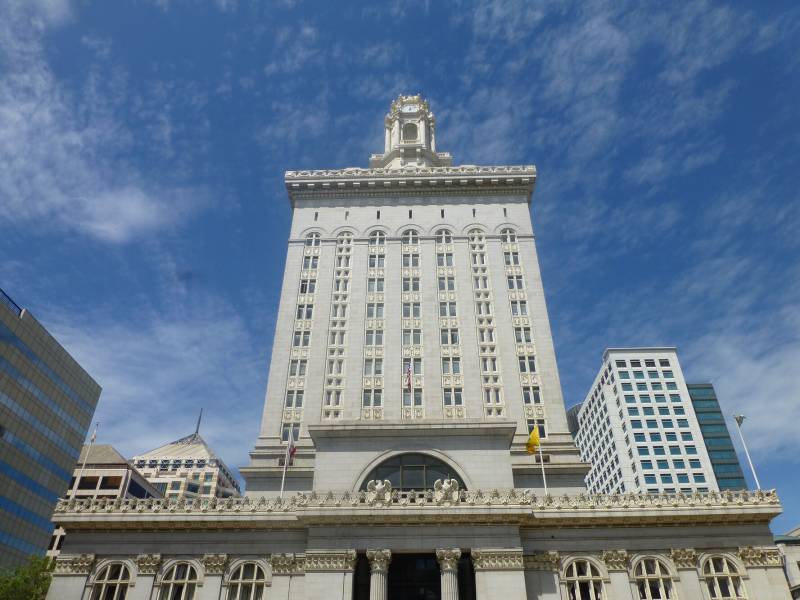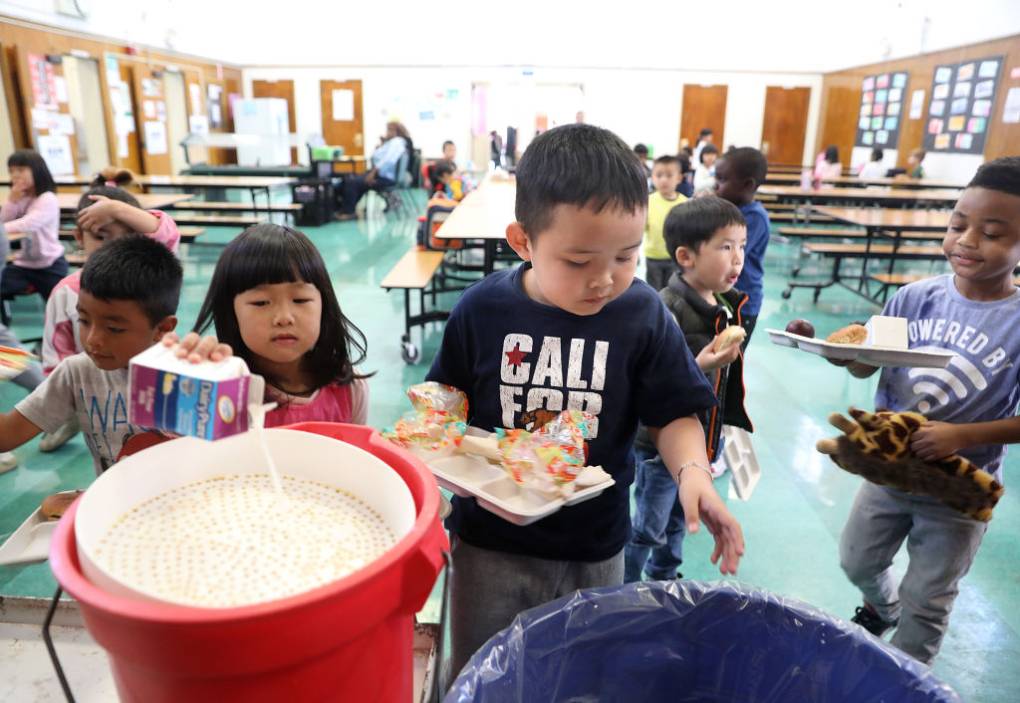As many as 50 children a day — from toddlers to middle schoolers — filed into her community center nearly every weekday last summer to receive lunch and snacks.
“Everything from sandwiches, pasta, chicken tenders — it was a pretty well-balanced meal,” she said. “There was always fruit. There was milk, carrots, celery.”
Elder said her deep East Oakland neighborhood is a food desert, where many families with low income lack access to healthy food.
“So this has been an awesome program. It’s been really beneficial to have these meals available and then the kids know that, guaranteed, Monday through Friday they can still eat,” she said. “I understand the issues regarding budget and funding at the city level, but at the same time, when you cut programs that impact families and children, what message are you sending?”
Nearly 75% of OUSD students (PDF) qualify for free or reduced lunch, and many regularly experience food insecurity.
Oakland has a long history of offering free food programs for children. In January 1969, the Black Panther Party launched the Free Breakfast for School Children Program at St. Augustine’s Episcopal Church in West Oakland, later expanding to other churches and community sites in Oakland and San Francisco’s lowest income neighborhoods. By the end of the year, the Panthers had set up kitchens in cities across the country, and claimed to have fed some 20,000 children (PDF).
Oakland’s initial move late last month to cancel the program followed a December city council vote to reallocate funds from its sugar-sweetened beverage tax, part of a frantic effort to close what was then a nearly $130 million budget shortfall. The tax, which voters approved in 2016, generates more than $7 million a year, a portion of which is intended to support youth health-related programs.
Oakland previously used about $200,000 of that revenue each year to supplement funding for the USDA-sponsored summer food program and cover administrative costs, but said the money was no longer available as a result of the reallocation.
“Without those funds, the City is unable to continue working with community partners and organizations to provide food in the summer of 2025,” Akanji wrote in the letter to partner sites.
The city administrator’s office did not respond to questions about when it made the decision to cancel the program or why it waited four months after the council’s budget vote to inform partner sites.
“If the city had told us a month ago, people could have applied for [other] funding, but they didn’t,” said Maria Alderete, executive director of Community Kitchens, an Oakland nonprofit meal provider. She said she learned about the program’s cancellation from KQED’s article.
“In not communicating, not being transparent, the city is really jeopardizing the program in terms of feeding kids,” she said. “It’s just disappointing that the city of Oakland would drop the ball.”
Given the “dumpster fire that is the city of Oakland budget,” Alderete said the city should really start handing programs like this over to nonprofits to administer.
“My gut is that it wasn’t really about the money itself in terms of a budget decision,” she said. “It was more about the fact that City Hall is gutted right now. They can’t administer contracts. They can’t actually pay people the invoices.”
Alderete said she was still determined to find money to make meals for Oakland kids this summer — with or without help from the city.
“Not feeding our kids this summer is not an option,” she said.

